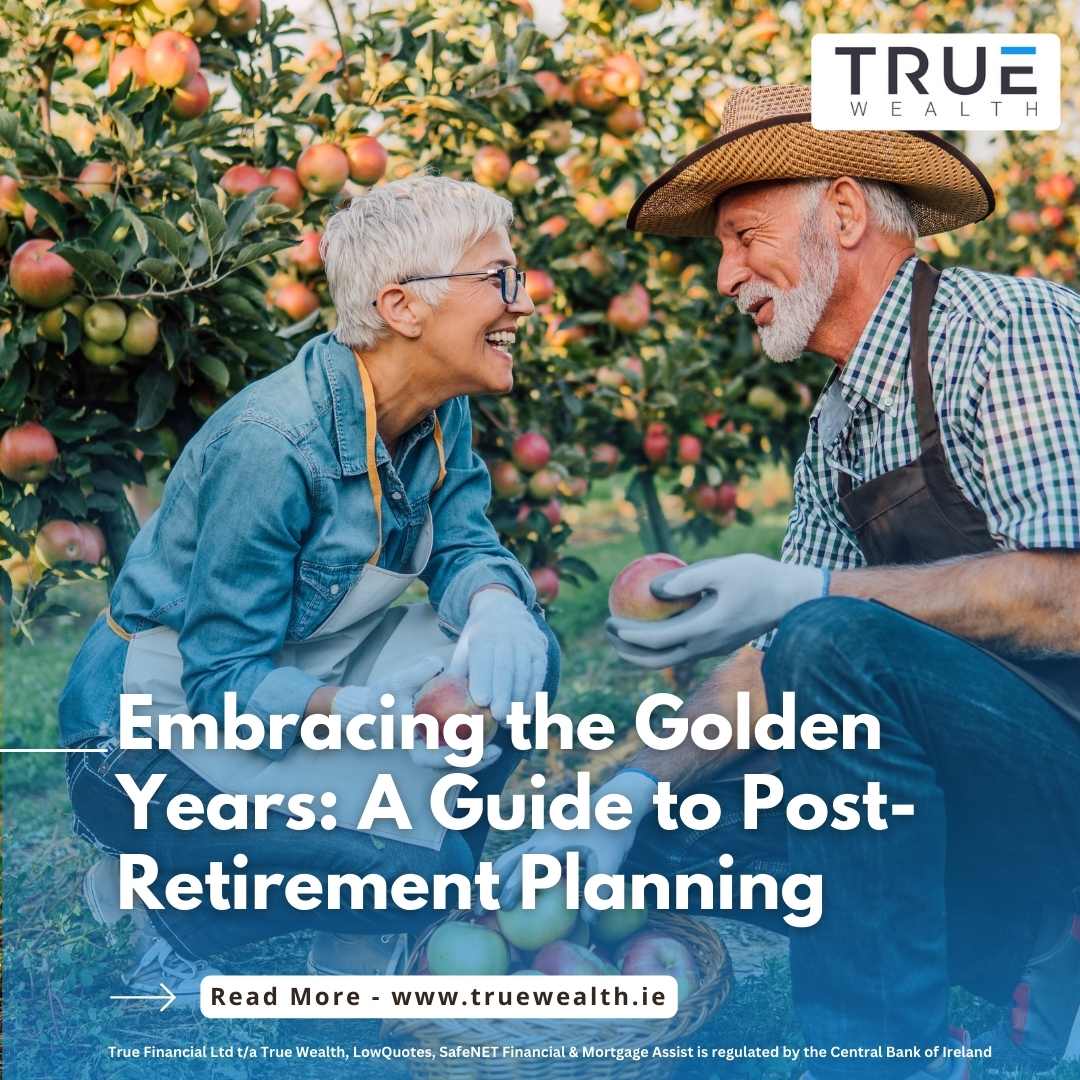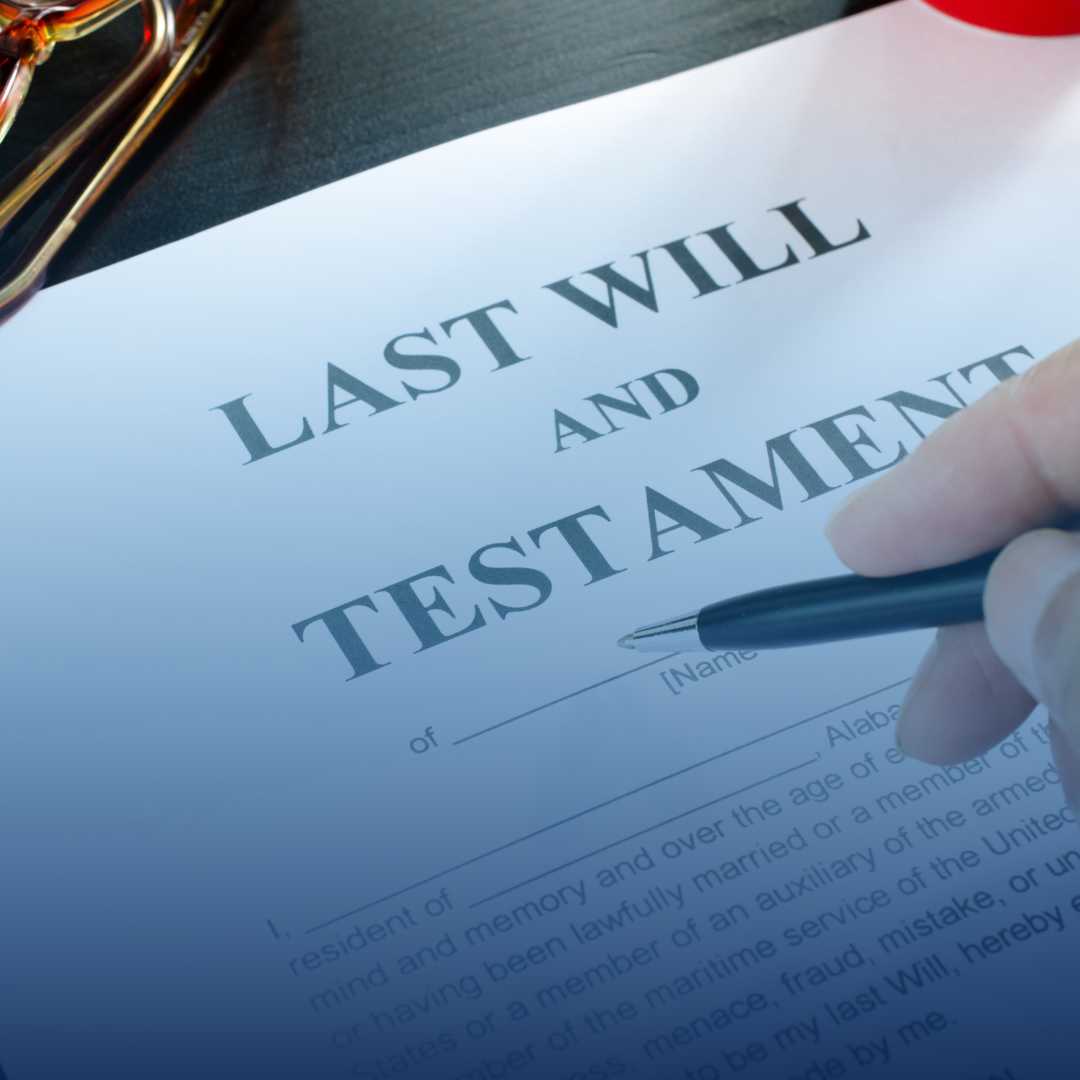Will Your Pension Funds Be Enough for Retirement?
Table of Contents
What do you envision for your retirement? You might dream of being free to do all those things you’ve always wanted but have yet to have the time for, such as travel, take up a new hobby, or buy a motorhome to embark on adventures around Ireland or Europe.
Achieving these dreams requires financial freedom as well. So, if you’re asking yourself, “How much pension income do I need to live comfortably?” or “What’s a good retirement income?” It’s essential to consider all your expectations and the associated costs.
Planning for a comfortable retirement means estimating your expenses, including leisure activities, daily living costs, and potential healthcare needs, to ensure you can enjoy your golden years without financial stress.
Which Decade Do Most People Believe Will Be the Most Costly in Retirement?
In a recent survey, Royal London uncovered several key insights into the general perception of retirement costs:
1 in 2 people (50%) believe their sixties will be the most costly decade in retirement.
45% of people in Ireland expect their sixties to be the years they will need the most money.
38% expect their seventies to be the most expensive.
Age-Specific Views:
People aged 55 and older are split:
- 40% believe their sixties will be the most costly.
- 39% believe their seventies will be the most costly.
- 19% of people over 55 expect their eighties to be the most expensive, compared to 8% of 35-44-year-olds who think the same.
Regional Differences:
Dublin residents are more likely to think their eighties will be the most costly (21%) compared to residents in Connacht and Ulster (12%).
Minimal Concern for Nineties:
Very few people expect their nineties to be the most expensive period of their retirement (ranging from 0% to 3%).
Conclusions:
Sixties as Peak Expense: Most people, particularly those nearing retirement, view their sixties as the peak expense period. This could be due to anticipated healthcare costs, lifestyle maintenance, or travel plans that are common in the earlier retirement years.
Shift in Perspective with Age: Younger individuals (35-44) are less likely to see their eighties as costly, possibly because they are more focused on the nearer future. Older individuals (55+) have a broader perspective, considering longer-term healthcare and assisted living costs.
Regional Variations: Dublin residents may anticipate higher costs in their eighties due to the higher cost of living and healthcare services in urban areas compared to rural regions.
The 90s are Low Concern: The minimal concern for costs in the nineties could reflect an expectation of reduced lifestyle expenses or reliance on savings and pension plans established earlier in retirement.
This survey highlights the importance of financial planning for retirement, emphasising the need for proactive measures to ensure a comfortable and secure future.
What’s the Cost of Retirement?
According to Royal London Ireland, there are some potential costs that individuals might face in retirement, depending on their circumstances. These include:
Nursing Home Fees: Weekly fees can range from €1,000 to nearly €3,000, with annual costs potentially exceeding €150,000 in some cases.
Mortgage: A study found that 27% of homeowners expect to pay off their mortgage in their retirement years (65+) and 8% into their 70s. Given that the average mortgage for first-time buyers is €282,084, this can be a significant financial burden.
Healthcare Costs: These include health insurance premiums (which can exceed €390 a month or €4,700 a year), GP appointments (costing between €45 and €70 per visit without a GP visit card), regular prescriptions, and more expensive treatments such as surgeries and treatment for depression.
Day-to-Day Living Costs: Expenses like fuel, food, and utilities can add up. For instance, the average annual electricity bill for a typical three-bedroom house is €1,763, and the average annual gas bill is €1,466.
Discretionary Spending: This varies widely but can include travel (with nearly half of pre-retirees planning to travel in their later years), hobbies, or further education.
Dependants: With the average age of mothers giving birth in Ireland at its highest and a significant number of women giving birth at 40 and over, many retirees may still be supporting their children.
Costs can include helping with house deposits (with 42% of first-time buyers receiving parental gifts towards their house deposit) and third-level education fees during the period of 3-4 years, which is €66,152 with student accommodation and €46,560 with rented accommodation. It stands at €25,844 while still living at home.
Planning for these expenses is crucial to ensure financial stability and comfort in retirement.
Get a Retirement and Pension Planning Quote
State Pension vs. Private Pension?
In Ireland, the State Pension and Private Pension serve different roles in retirement planning.
The State Pension is a government-provided benefit based on your PRSI contributions throughout your work. It aims to provide a basic income in retirement. As of 2024, the state pension is €277.30 per week.
In contrast, a Private Pension is a long-term savings plan designed to build a fund for your retirement. The more you save, the larger your pension pot will grow, thanks to compound interest and tax relief.
Additionally, if you are in an occupational pension scheme, your employer may also contribute, adding even more to your fund. This extra money boosts your retirement savings, helping you secure a comfortable future.
Why Should I Have a Private Pension?
There are numerous benefits to having a Private Pension, with the primary one being the ability to supplement your state pension to cover living expenses, healthcare, and other costs.
Another significant advantage is the potential for tax reductions on your contributions, which can save you money overall.
Additionally, the power of compound interest allows your savings to grow exponentially over time.
For a more detailed exploration of the benefits of having a private pension in Ireland, please read our full article.
How Much Should I Save for My Retirement?
Calculating how much pension you need at retirement involves considering several key factors to ensure you can maintain your desired lifestyle without financial stress. Here are some important considerations:
Current Expenses:
Basic Living Costs: Assess your monthly expenses, such as housing, utilities, food, transportation, insurance, and healthcare. This helps establish a baseline for your retirement budget.
Lifestyle Costs: Consider discretionary expenses like dining out, entertainment, hobbies, and travel. Include any additional spending you plan to do in retirement, such as taking up new hobbies or travelling more frequently.
Future Expenses:
Healthcare Costs: Healthcare expenses generally increase with age. Include premiums for health insurance, out-of-pocket expenses, and potential long-term care costs.
Inflation: Account for inflation, which erodes the purchasing power of your money over time. A common estimate is to plan for an average annual inflation rate of about 2-3%.
Retirement Age and Duration:
Retirement Age: Decide at what age you plan to retire. Early retirement requires a larger pension pot since the savings must last longer.
Life Expectancy: Estimating your life expectancy is an important step in retirement planning.
While life expectancy is affected by health, genetics, lifestyle, and nutrition, you can estimate it based on your parents’ and grandparents’ longevity and your current health.
The average remaining lifespan for a 65-year-old woman is approximately 19.66 years, bringing her total life expectancy to 84.66 years. For a 65-year-old man, the average remaining lifespan is about 16.94 years, reaching a total of 81.94 years.
As of 2024, the current life expectancy in Ireland is 82.96 years.
You can consider and incorporate the current life expectancy estimates into your retirement planning. It’s also wise to plan for a longer-than-expected lifespan to avoid the risk of outliving your funds.
Get a Retirement and Pension Planning Quote

Debts:
Outstanding Debts: Plan to minimise or eliminate high-interest debts before retirement. Include ongoing obligations, such as mortgage payments, if you expect to carry them into retirement.
Desired Retirement Lifestyle:
Standard of Living: Determine the standard of living you want to maintain. This includes housing (downsizing or relocating), leisure activities, and other personal goals.
Retiring Abroad: Several factors must be considered if you want to retire abroad. Start by researching the cost of living in the country you are considering, as this will significantly impact your budget and lifestyle.
Additionally, understand the taxation rules on your pension in both your home country and the destination country to avoid unexpected tax liabilities.
Other considerations include healthcare availability and costs, legal requirements for residency, and potential language barriers. For more detailed information and guidance on retiring abroad from Ireland, read our blog, which explains the steps and considerations to make your dream of retiring abroad a reality.
Emergency Fund:
Contingency Planning: Set aside funds for unexpected expenses such as home repairs, medical emergencies, or other unforeseen events.
Tax Considerations:
Tax Impact: Consider the tax implications on your retirement income. To maximise your retirement, it’s important to understand how to access your pension funds, whether through an Approved Retirement Fund (ARF) or an Annuity and the potential tax implications of each.
Read our Post Retirement Planning Guide for more insights.
The ultimate Retirement Planning Guide.
Planning for retirement is a significant life milestone. Whether you’re just starting to think about retirement or are already well into your retirement journey, this guide aims to empower you to make informed decisions and create a retirement plan that aligns with your unique financial goals and expectations.

After you download your guide, one of our expert mortgage advisors will be in touch shortly to provide you with guidance and further relevant information including typical repayments, qualification amounts and mortgage requirements.
Get a Retirement and Pension Planning Quote
How Much Money Do I Need to Retire?
Determining how much money you need to retire involves estimating your retirement income and expenses. A common guideline is to aim for an income that matches 50-75% of your pre-retirement salary to maintain a comfortable lifestyle.
For instance, if your current annual salary is €45,000, and the state pension provides €277.30 per week or €14,419 per year, you would be short €30,581 annually if you relied solely on the state pension.
This shortfall highlights the importance of a private pension and additional savings and investments to cover the gap.
Some people may require more or less than this estimate. Consulting with one of our financial advisors at True Wealth can provide personalised guidance tailored to your unique situation, ensuring you have enough funds to enjoy a secure and comfortable retirement.
Estimate Your Retirement Income
Pension Plans: Review the details of all your private pensions, whether personal, occupational, Personal Retirement Savings Account (PRSAs), or executive. Understand how much income these will provide annually.
If you have forgotten or lost pension funds, it’s time to search for them. These funds can significantly boost your retirement savings, and you might have more money than you think.
If you’ve changed jobs or careers or simply have old pensions from when you worked in the UK, you can trace these pension plans and potentially consolidate them.
Start by checking your records and contacting former employers or pension providers. Additionally, we can assist you in tracking down any lost or forgotten pensions.
Learn more by reading our articles:
- The Importance of Pension Tracing in Shaping Your Retirement Strategy
- Can I transfer my UK pension to Ireland?
- What Happens To Your Pension After Leaving Your Job?
State Pension: Factor in the State Pension you’ll receive.
Personal Savings and Investments: Include any other sources of income, such as savings accounts, investment portfolios, rental income, or part-time work.
Assess Your Pension Pot: Check your current fund value by contacting your pension provider for the most up-to-date information.
You should receive a pension statement from your provider every year (or every six months, depending on the provider). This statement will detail the contributions made to your pension funds and provide an investment report showing the returns earned on the funds.
The annual pension statement also includes a projection of potential future benefits upon retirement. This projection is based on the current value of your pension funds, expected future contributions, prevailing charges, and assumed investment growth rates.
Estimate future growth: Consider potential investment growth and additional contributions until retirement.
If your employer matches your pension contributions, consider increasing your own contributions to maximise this benefit. You can also make Additional Voluntary Contributions (AVCs) to boost your pension savings. AVCs are a tax-efficient way to enhance your retirement fund, and you can even use some or all of your bonuses to make these contributions, ensuring you have more money available when you retire.
Seek professional advice: Consult one of our financial advisors at True Wealth for personalised guidance based on your unique situation.
Strategies for retirement planning at each age
Whether you are just beginning to contribute to a pension fund, nearing retirement, or somewhere in between, each stage brings its own set of challenges and opportunities.
To clear your doubts about the best time to start a pension, how private pensions work, how to maximise your pension pot, and more, read our comprehensive Retirement Planning Guide.
Alternatively, seek guidance from our financial advisors at True Wealth to ensure your pension strategy aligns with your unique financial situation and goals.
Retirement Planning With True Wealth
Planning for retirement is a critical financial endeavour, and a key component of this plan is ensuring that your pension pot is sufficient to cover your needs throughout retirement.
True Wealth understands that retirement planning is not one-size-fits-all. We work closely with you to develop a personalised strategy that aligns with your unique financial situation, lifestyle, and retirement goals.
With our expertise, you can navigate the complexities of retirement planning in Ireland, make informed financial decisions, and secure a comfortable retirement that aligns with your dreams and expectations.
Don’t limit your retirement to the State pension; partner with True Wealth for a well-structured and tailored retirement plan.
We are experts in personal and business protection, savings and investments, pension tracing, personal and business financial planning, mortgages, and wealth extraction.
Get a Retirement and Pension Planning Quote
All our content has been written or overseen by a qualified financial advisor. However, you should always seek individual financial advice for your unique circumstances.








